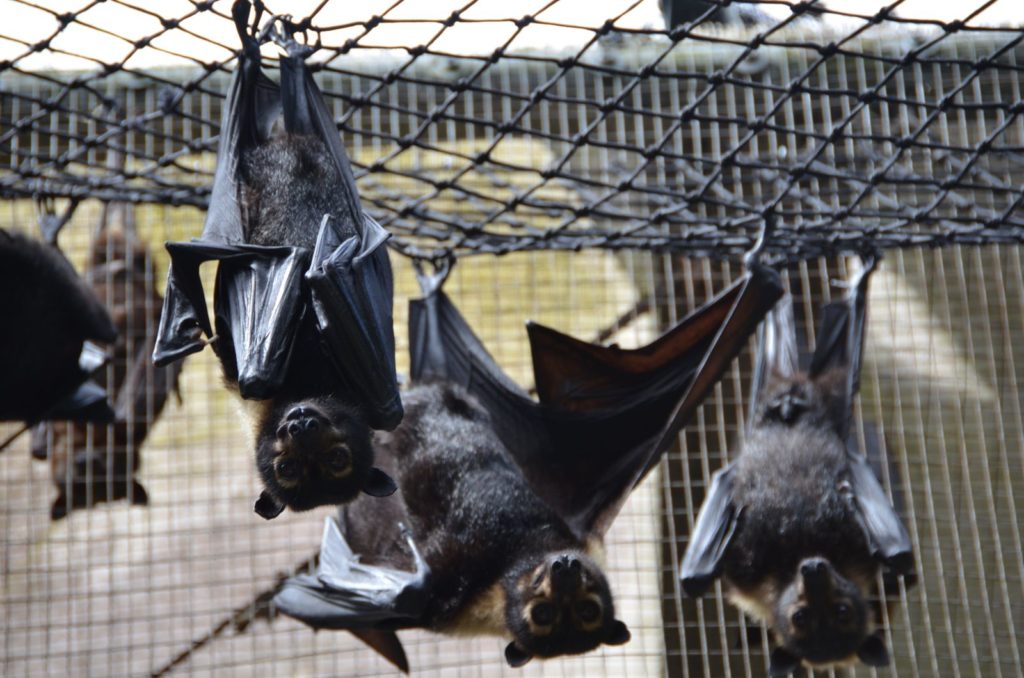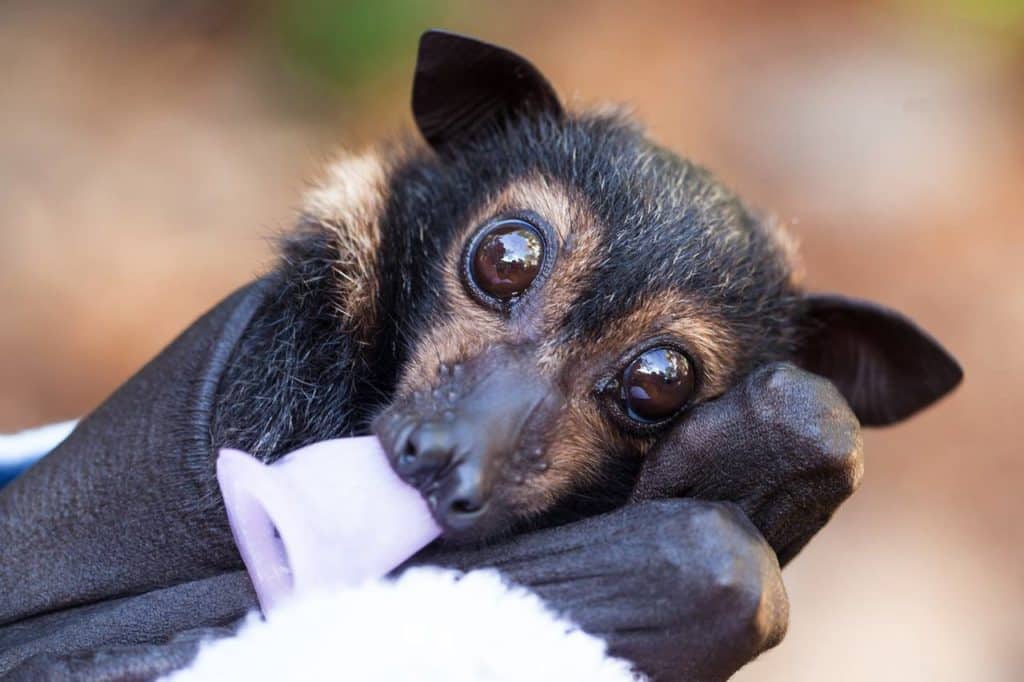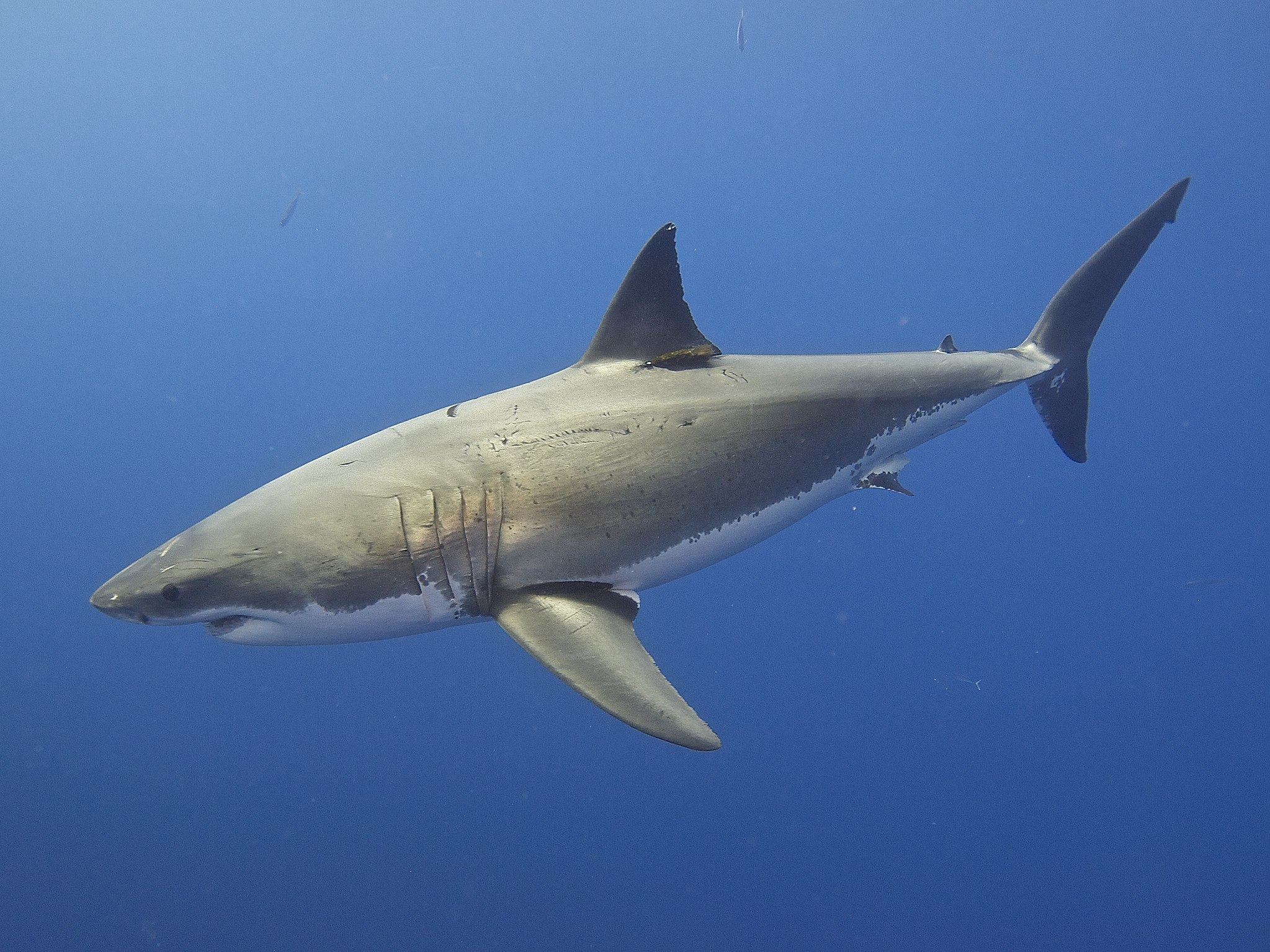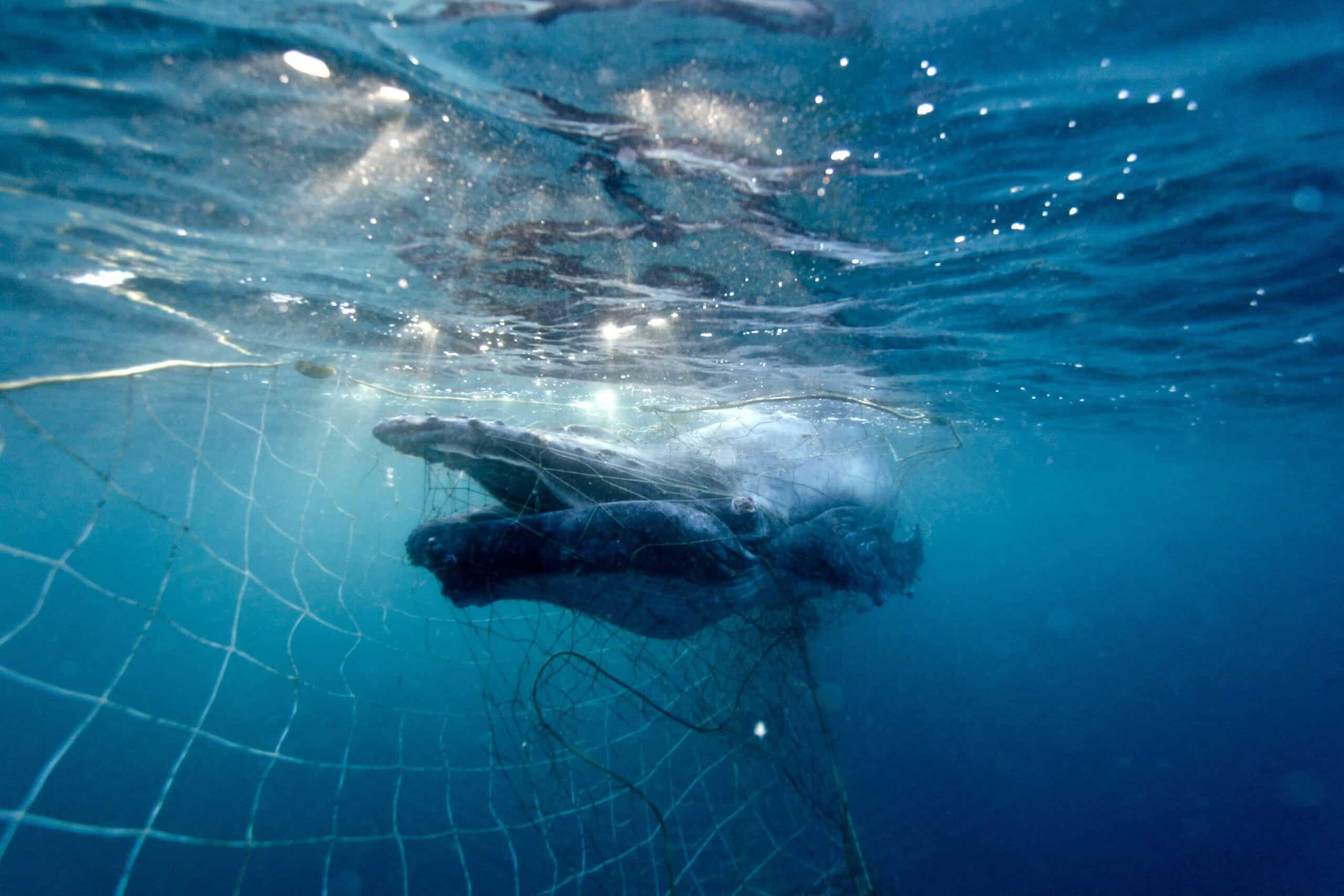Research shows that Australia’s great white sharks are highly related to each other and may consist of fewer than 500 breeding animals. SYDNEY, 24 June 2025: Latest research has found Australia’s great white shark population is much smaller than expected, increasing their vulnerability to further population threats. The population...
The spectacled flying-fox camp in Cairns has a tumultuous history, being subject to creeping destruction and the impacts of construction projects for years. It’s an incredibly significant site for the Endangered species and is recognised as one of just twenty ‘Nationally Important Camps’ that should be conserved. Distressingly, the Federal Government has just given the go-ahead for Cairns Regional Council to attempt to ‘relocate’ (harass away) up to 8,000 flying-foxes from the site.
Humane Society International made a nomination to have the spectacled flying-fox, then considered Vulnerable, considered for a national Endangered listing in 2015. Despite the scientific advice being clear and a decision to uplist being due at the start of 2017, former Environment Minister Josh Frydenberg used a loophole in the EPBC Act to delay his obligation to do so for more than 18 months.

Then in November 2018, while we were still waiting for the flying-foxes to have their increased threat status recognised, a devastating heatwave hit Cairns. It caused more than 20,000 of the animals, up to 1/3 of the Australian population, to die horrifically of heat stress.
Increasing temperatures had long been known to be a threat to these mammals that struggle to survive in extremely hot conditions, but deaths at this scale were a shock to all. To continue to deny the species its rightful Endangered status would be farcical, and although the decision was well overdue we were grateful when former Environment Minister Melissa Price finally signed on the dotted line in February 2019.
The loss of so many bats in a single hit made it abundantly clear spectacled flying-foxes are in dire straits. It was hoped their heightened threat status would grant greater weight to conservation in decisions involving the flying-foxes—further heatwaves may be impossible to avoid at this stage, but we can improve our preparedness for them and limit other impacts on the species such as habitat destruction and attempted dispersals (evictions).

Unfortunately, it seems that hasn’t been the case. The Commonwealth Government has frustratingly just approved Cairns Regional Council’s request to try to disperse a significant portion of the remaining Australian population of spectacled flying-foxes from their Cairns CBD camp. This is despite such eviction attempts having a very low success rate and the action clearly not being in the best interests of the species.
Making the decision even more frustrating is that spectacled flying-foxes are in the fairly unusual situation for a threatened species in Australia of having a Recovery Plan, which lists ‘harassment by humans’—a direct reference to attempted dispersals official or otherwise—as a ‘known and significant threat’ to the species. Furthermore, the most likely outcome of any attempt to evict the bats is opportunistic roosting in surrounding areas and an escalation of human-wildlife conflict.
Any dispersal action is clearly out of line with the best interests of the spectacled flying-fox and would set a dangerous precedent for how these Endangered species are treated. The case of spectacled flying-foxes in Cairns is a clear example of why we need stronger laws with Recovery Plans that aren’t just lip service, and that remove the broad discretions available to decision-makers. We can do better.
The attempted dispersal is set to occur in July. HSI has requested a Statement of Reasons for the decision to approve the action from the Federal Environment Minister and continues to watch the situation closely.
To subscribe to our blog click here.
Evan Quartermain is Head of Programs at Humane Society International and has been with the organisation since 2010. A member of the IUCN World Commission on Protected Areas, Evan is responsible for HSI’s terrestrial habitat and wildlife protection campaigns and programs, with particular focus on legislative reform, flying-foxes, dingoes, and habitat protection through Threatened Ecological Community and Natural Heritage nominations.
Header image: David White


